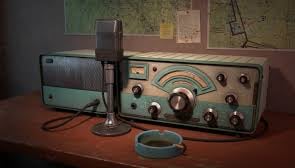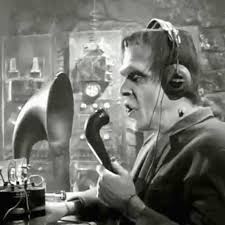Amateur Radio : A service or a Hobby ?
What is the purpose of Amateur Radio and why would i want to become a amateur radio operator ?
HAM RADIO
Marcus Ka9cut
7/9/20254 min read


Amateur Radio: A Service or a Hobby?
For those outside the world of wires, antennas, and cryptic call signs, amateur radio might seem like a niche pastime. Is it just a quirky hobby for tech enthusiasts, or does it serve a greater purpose? The truth, as with many things, is that amateur radio, often called "ham radio," is a fascinating blend of both. Let's delve into the arguments for each side, examining the pros and cons that make this community so unique.
Amateur Radio as a Hobby
There's no denying the immense enjoyment many derive from amateur radio. From building your own equipment to making contacts across the globe, it offers a rich and rewarding recreational experience.
Pros of Amateur Radio as a Hobby:
Lifelong Learning: Ham radio is a continuous journey of learning. You'll delve into electronics, radio propagation, antenna theory, digital modes, and even a bit of meteorology. There's always a new skill to master or a new technology to explore.
Technical Exploration & Experimentation: For the tinkerer and the curious, amateur radio offers a playground. You can design and build your own radios, antennas, and accessories, truly understanding how they work from the ground up.
Global Connections: Imagine chatting with someone in Japan one minute and then bouncing a signal off the moon to talk to an astronaut the next! Ham radio connects you with people from all walks of life, fostering unique friendships and cultural exchanges.
Sense of Accomplishment: Making your first contact, successfully troubleshooting a tricky circuit, or passing a challenging licensing exam all provide a deep sense of satisfaction.
Community & Camaraderie: The amateur radio community is vibrant and welcoming. Local clubs, online forums, and on-air nets provide opportunities to share knowledge, get help, and enjoy the company of like-minded individuals.
Diverse Activities: Beyond just "talking on the radio," there's contesting (competitive operating), digital modes, satellite communication, slow-scan television, Morse code, QRP (low power) operation, and much more. There's truly something for everyone.
Cons of Amateur Radio as a Hobby:
Cost: While you can start relatively inexpensively, the hobby can become quite costly, especially if you get into specialized equipment, high-power amplifiers, or elaborate antenna systems.
Technical Barrier to Entry: For some, the initial technical knowledge required for licensing and operation can seem daunting. While resources are plentiful, it does require a commitment to learning.
Space Requirements: Depending on your ambitions, you might need space for antennas, a dedicated "shack" for your equipment, and a clear line of sight for certain types of communication.
Interference Issues: Radio waves can sometimes interfere with household electronics, and conversely, electronic devices can cause interference to your radio, requiring careful management.
Time Commitment: Like any fulfilling hobby, amateur radio can be a significant time sink, whether you're studying, building, operating, or participating in club activities.
Amateur Radio as a Service
Beyond the recreational aspects, amateur radio has a long and proud history of public service, often stepping up when traditional communication infrastructures fail.
Pros of Amateur Radio as a Service:
Emergency Communications: This is perhaps the most well-known service aspect. When earthquakes, hurricanes, floods, or other disasters knock out power grids and cell towers, amateur radio operators are often the last line of communication. They provide vital links for emergency responders, served agencies (like the Red Cross), and even family welfare messages.
Community Support: Hams regularly provide communication support for community events like parades, marathons, and bike races, ensuring safety and coordination.
Technical Preparedness: By maintaining and operating their equipment, amateur radio operators are inherently prepared to deploy their communication skills and assets in times of need.
No Reliance on Infrastructure: Unlike cell phones or the internet, ham radio often operates independently of commercial infrastructure. Operators can power their equipment with batteries or generators, making them resilient in emergencies.
Trained Operators: Amateur radio operators are licensed and trained in proper radio procedures, minimizing interference and maximizing effective communication, especially crucial in emergency situations.
Innovation for Public Benefit: Many advancements in radio technology, even those used commercially, have their roots in amateur radio experimentation.
Cons of Amateur Radio as a Service:
Requires Training and Drills: To be effective in a service role, operators need more than just a license. They require ongoing training, participation in drills, and familiarity with emergency protocols, which demands additional time and effort.
Limited Scope (in non-emergencies): In everyday life, for most routine communication, commercial services are more convenient and readily available. The service aspect shines brightest during crises.
Dependency on Volunteers: The effectiveness of amateur radio as a service relies entirely on the dedication and availability of its volunteer operators.
Maintaining Skills and Equipment: To be truly ready for service, operators must consistently maintain their skills and ensure their equipment is in working order, which can be an ongoing commitment.
Not Always "Called Upon": While prepared, active service opportunities may not arise frequently, which can be a pro (less disaster!) but also a con for those eager to contribute regularly.
The Blended Reality
Ultimately, amateur radio exists as a beautiful synergy of both hobby and service. Many operators are drawn in by the hobby, only to discover the profound satisfaction of contributing to public safety. The skills learned through experimentation and casual conversation directly translate into the ability to provide critical communications when it matters most.
So, is amateur radio a service or a hobby? It's both, and that dual nature is precisely what makes it so enduringly valuable and endlessly fascinating. Perhaps the better question is, are you ready to join the airwaves and discover which aspect resonates most with you?
Ham Radio Basics
Your guide to becoming a ham radio operator.
© 2025. All rights reserved. KA9CUT
info@hambasics.com

